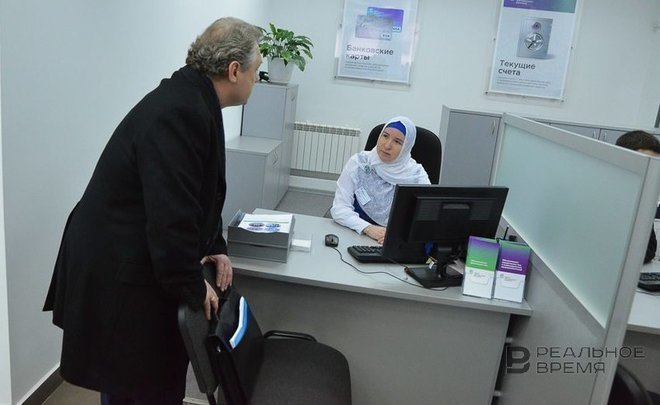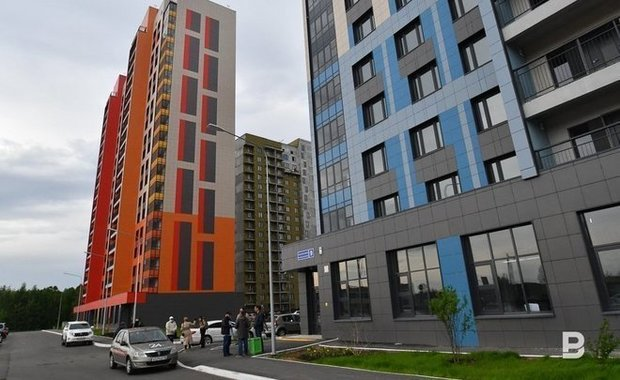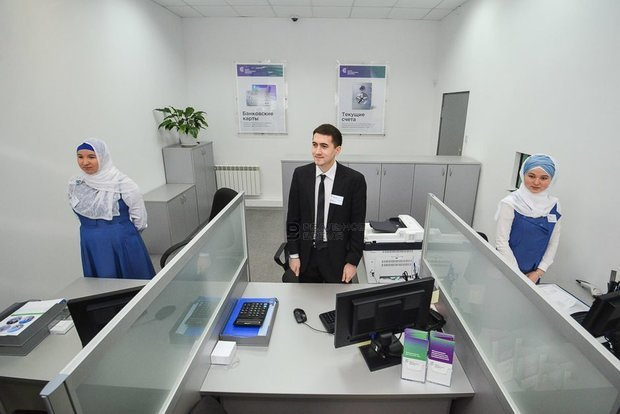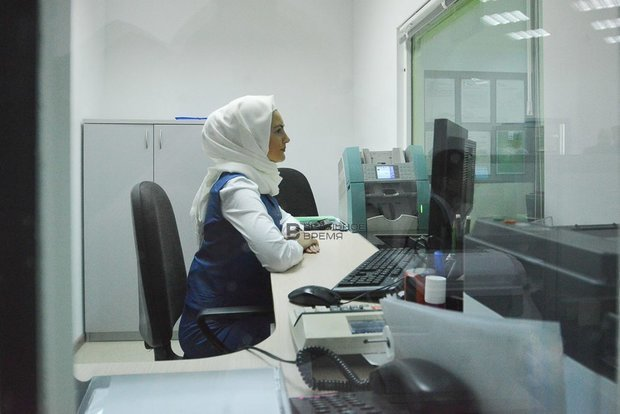Money entrusted to Allah: Islamic banking to be legalised in Russia
The Bank of Russia chose Tatarstan one of the four pilot regions where a new experimental legal regime will be tested in 2023

Tatarstan started developing Islamic banking more than 10 years ago. Realnoe Vremya’s analytic service learnt what producers are available today for Muslims in the republic and found out that the market isn’t yet notable for intense competition.
A new bill designed to develop Islamic finance in Russia has already been received in the Russian State Duma. The so-called organisations of partnership financing will develop this area. The Bank of Russia that will have a registry of companies and exercise control will regulate the market. The new experimental legal regime is planned to be tested in four pilot regions from February 2023 — Tatarstan, Bashkiria, Chechnya and Dagestan. According to some data, head of the Chechen Republic Ramzan Kadyrov personally lobbied it.
Tatarstan started to push the idea of creating a special zone to develop Islamic banking more than 10 years ago. Housing Traditions cooperative has been operating in the republic since 2018 granted a deferment of payment to buy a house. Ak Bars Bank has been issuing an “Islamic mortgage” since 2019, and it has been possible to buy a car and special machinery according to Sharia norms since 2020. However, due to the absence of regulation and support of the federal centre, it hasn’t been possible to create many companies working according to Sharia laws in the republic. Their total turnover, by experts’ estimate, doesn’t surpass a billion rubles today.
Companies following Islamic principles in Tatarstan
Organisation | product | year of start | |
1 | Ak Bars Bank PJSC (via Mortgage Partner PLC) | Islamic mortgage sale and purchase of real estate paid in instalments | 2019 |
2 | Ak Bars Bank PJSC | Islamic debit card | 2022 |
3 | Ak Bars Capital MC PLC | Lale open-end mutual fund, investments in companies meeting Sharia norms | 2019 |
4 | Amal Financial House PLC | Sale and purchase of real estate paid in instalments | 2020 |
5 | Ijara Leasing | Car and special machinery leasing according to Sharia norms | 2020 |
6 | Housing Traditions housing savings cooperative | Purchase of homes paid in instalments according to Sharia norms | 2018 |
7 | MFC PLSC | Sale and purchase of cars, special machinery and equipment according to Islam principles | 2021
|
Traditions of halal mortgage
Housing Traditions housing savings cooperative was one of the first to enter the Tatarstan market with an Islamic financial product. Since 2018, it has been granting a deferment of payment to buy a house in Halal programme.
“Everything began in 2017, the concept of halal lifestyle appeared then,” remembers Director of the cooperative Rustam Shafigullin. Tatarstan President Rustam Minnikhanov ordered to elaborate a mechanism to finance a purchase of real estate property according to Sharia, and a task force was created. A new investment and financial product was developed — to buy flats and pay by instalments following Sharia norms, and a housing savings cooperative was created.
The flats bought through this cooperative aren’t collateral in loan agreements, shareholders aren’t imposed late fees, penalties and fines for an overdue payment. At the same time, there are other mechanisms to “encourage meeting the liabilities.” As Rustam Shafigullin explained, everything is quite simple: “If a shareholder doesn’t pay monthly instalments for three months, the flat can be exchanged for a less expensive real estate property or the share can be sold for a market price.” Lastly, the flat can be up for sale.

The cooperative collaborates with Unistroy providing a deferment of payment in all the regions this company has offices in. Since 2018, the cooperative has signed more than 600 deals in the Halal programme for 2,3 billion rubles. To buy a flat to pay in instalments today via the cooperative, it is necessary to pay the first instalment of at least 50% of the flat value. The term will be up to five years.
Rustam Shafigullin thinks that nothing will change in the market of housing non-profit cooperative with the adoption of the new law from 2023: “The new bill is about partnership financing and has just started to be considered in the State Duma. A lot of unregulated issues have left,” he says. It will take as few as several years after the adoption of the law and it comes into force to talk about the first results of the activity.
The mode of operations of new organisations of partnership financing, according to him, will be similar to the model of an open end fund. In fact, it is a model of discretionary management that will help to attract additional money into the economy, which is topical in the current situation when the links with Western financial markets turned out to be broken.
He thinks the most difficult thing will be to find legally and financially intelligent specialists that can found an organisation, prepare agreements and a financial model complying with Sharia norms: “We created it all and went through expert discussions for more than a year. The physical realisation of the new financial instrument can take several years,” he is convinced.

Islamic debit card and investments in halal shares
Ak Bars Bank has been offering two programmes of housing financing according to Sharia norms since 2019: Megapolis — Islamic Mortgage programme to buy flats in blocks of flats and Comfort — Islamic Mortgage to buy houses and land parcels. In fact, an Islamic mortgage is a sale of real estate to pay by instalments with some surcharge that depends on the term of the agreement and the amount of the first instalment.
This year, the bank has launched an Islamic debit card designed together with the Council of Religious Centres of the Muslim Religious Directorate of Tatarstan. Money is kept in such card without interest, clients’ money records are on other accounts of the bank, while invested money isn’t used to finance an activity banned by Sharia, the press service of the bank explained.
Besides these financial tools, Ak Bars Capital offers Muslims Lale open-end mutual fund that allows investing in securities in a halal way. The financial instrument was engineered based on an investment method certified by the Council of Religious Centres of the Muslim Religious Directorate of Tatarstan.
The press service doesn’t reveal the amount of issued Islamic products but report on positive dynamics in the growth of applications. According to the bank, there is demand in all the regions of the country where Muslims live, but especially in Northern Caucasus regions.
Today the company is actively working on the creation of new products for both retail and corporate businesses. Some of them are scheduled to be launched in 2023. Tatarstan’s involvement in the pilot project, by the bank’s press service’s estimate, will permit Islamic banking to develop further, which will lead to a rise in the number and quality of banking products meeting Sharia norms.
The bank doesn’t yet see rivals because Russia almost doesn’t have banks working according to Sharia norms, however, new big market players are expected to appear by the end of the year. Sberbanks perhaps is the case, it already announced its intention to open the first Islamic office in Kazan. It will offer products of partnership financing: mudarabah (an analogue of discretionary management), halal investment instruments, trade financing, banking guarantee, payment and running accounts and payment and cash services, Sber’s press service specified.

Staff from SberUniversity
In the first quarter of 2023, Islamic Financing educational programme will be launched at SberUniversity that will cover Islamic commercial law, banking activity and insurance, capital markets and investment tools, accounting for Islamic financial institutions.
The programme will include more than 100 academic hours. Russian and foreign specialists will teach its students. After the programme ends, students will get a certificate issued by Global Islamic Financial Services international educational organisation in Islamic financing and a retraining diploma.
As soon as the programme is over, its students will be able to understand the basics, practice and procedure of the Islamic financing activity. The bank thinks that thanks to the diversification of the Russian economy and expansion of the cooperation between businesses and Near Eastern countries, the demand for such specialists will just grow.
Not alternative to global financial system
-
-

Yan Art Financial expert, member of the Commission for Banks and Banking Activity of the Russian Union of Industrialists and Entrepreneurs
-
The topic of Islamic banking in Russia has been discussed for over 15 years. It has been discussed in working groups of the Association of Russian Banks too when I was still the vice president of this organisation. And doubts have always arisen, and not only from the Central Bank but also the agencies regulating other activities. So from the perspective of the Central Bank, it was unclear parameters of regulation and risk assessment. The whole risk assessment system of financial mechanisms was based on loan interest principles. Here there is no such principle. There were certain questions: “How then?” And these questions could be answered simply turning to the experience of Saudi Arabia or the Emirates.
The second question was from law enforcement agencies. If Muslims have separate Islamic banking, won’t Muslims need a separate criminal code based on Sharia laws?
There have been experiments with Islamic banking in Russia because the law didn’t ban it, it simply didn’t stimulate its development. There have been attempts in Tatarstan, in Northern Caucasus and Bashkiria. From a business perspective, all these attempts had zero effect.
However, the practice shows that Islamic banking works, particularly it works quite successfully in a place where it is hard to suspect that Sharia is a case in point, in London.
In general it is a very interesting mechanism in the financial market. But at the same time it is necessary to soundly evaluate that it is not an alternative to the global financial system. For instance, in the so-called sukuk, that’s to say, bonds based on Islamic banking, held just 0,8% of the world capital. It is an interesting think, but one shouldn’t be too confident from the beginning.
Moreover, the countries where Islam is almost a state ideology anyway participate in financial mechanisms of Western markets. Saudi family members, for instance, keep a part of City Group bank shares.
Why is the Bank of Russia doing it now? Have the sanctions had an impact? Yes, of course! If not this, the bill would still stay in cold storage, and they would return to it from time to time. This is an attempt of shaping an alternative of the Western financial system. It turned out to be like a Russian saying puts it: “Blessing in disguise.”
I am very glad that Tatarstan and Bashkiria are anyway among the pilot regions. And for one simple reason: if this pilot project was held only in Chechnya and Dagestan, I am afraid it would be purely ideological. It is necessary that regions with relatively a serious banking system and financial processes participate in the experiment. Without these two regions, the experiment would be sheer profanity.
-
-
-

Linar Yakupov Director of the Islamic Business and Finance Development Fund (IBFD
-
Tatarstan started to promote the idea of creating a special zone to test Islamic financial instruments more than 10 years ago. As early as 2010, we created a roadmap to develop Islamic banking, in 2015-2016, together with the Malaysian Central Bank developed a technical and economic feasibility study. Then we offered to make the Republic of Tatarstan a pilot region in Russia. Our document was examined but put on the shelf. It was a serious 400-500-page document where it was clearly spelt out what and how needed to change.
This time, at the suggestion of Chechnya, the head of the country was sent another proposal to initiate the creation of Islamic banking that was approved in the end.
And today we have a framework agreement where we will make our amendments. Unfortunately, we are reinventing the wheel again.
There was a fuss in late July-August because only Chechnya and Dagestan were going to be included to the pilot project. We voiced altogether that Tatarstan and Bashkortostan needed to be included to the pilot.
Bashkortostan wants to create an analogue of Astana international financial centre, a special economic region that will operate within international law of deal structuring.
As a result, the regions in the pilot project are absolutely different in terms of their composition. Bashkortostan and Tatarstan are more representative because the Muslim population accounts for a bit more than half, and the economy of the regions is similar to the economy of Russia: both regions are energetic, industrial, with a well developed Western financial system. The financial system in the Caucasian regions is less developed and there is a bigger number of Muslims. But for fairness, both the Volga regions and the Caucasus needed to participate.
Today we have few financial organisations working in Islamic banking because there was no legislation. The product turned out to be more expensive than Western financial products.
Islamic products, in fact, resemble trade deals and the current coordinate system as trade transactions imposing a tax twice. When the law is adopted, there won’t be such problems as double tax imposition.
Today we also discuss what KPI to go by to understand that the pilot project is a success. According to my calculations, the annual turnover of transactions of Islamic financial organisations operating in the Tatarstan market doesn’t exceed a billion rubles.
If during the next two-three years 100 organisations open in test mode instead of five or six, turnovers will grow 50 times, I think the pilot project will be successful and Islamic banking can be launched across the country.
Теперь нам предстоит аналогичный путь с исламским банкингом. If now we remember the 90s, we didn’t have traditional, or Western in fact, banking, our bankers went to Europe and America to learn the basics of the Western financial world. And before the special military operation our financial system was focused on the West.
Why now? Firstly, before the special military operation, our economy, and especially the financial system, was seriously connected with the West. Before the recent events, Islamic banking didn’t even exist in the Russian government’s coordinate system. The current situation makes us look for new instruments, including cooperate with Islamic countries.
Secondly, it is the mobilisation of the population and businesses’ money inside the country. According to my rough calculations, we have 30 million Muslims in the country, and they can be interested in new financial instruments.
-
-
-

Maxim Osadchy Head of the Analytic Department of BCF bank
-
The attempt of launching Islamic banking logically fits in the general tendency of the “turn eastwards” when it comes to more active cooperation with Muslim countries, first of all, with Iran and the UAE. The cooperation with Turkey is successful enough even without Muslim banking. To reinforce financial flows with Muslim countries, to attract their investments, there is an attempt to create more comfortable conditions, including from a religious perspective.
There was an attempt of developing Islamic banking in Russia as early as 20 years ago. There was even Bard Forte Bank in Moscow that considered itself a Muslim bank whose licence was revoked in December 2006 for money laundering. However, it is a conditional Muslim bank because the bank’s report includes interest it received from loans, which is a sin, of course.
I think the satisfaction of the demand for Muslim banking products from the Muslim population is a less significant aspect. In our country, Muslims total about 20 million people. Muslims have been in Russia for centuries, and Islamic banking has anyway not settled down.
Muslim banking is banking based on Sharia laws. We will see if Sharia laws can coexist with the laws of the Russian Federation in the Russian banking system. The experiment will show if such “peaceful coexistence” of such different banking models is possible. At the moment the whole system is designed for the Western banking model.
-
-
-

Ramil Batyrshin Director of Bate consultancy, coordination of Interest-Free Loan According to Sharia Norms of Housing Traditions cooperative
-
The law on partnership financing that has been sent to the State Duma now is not only about Islamic finance. One should have a wider look at it because everybody can use it. The law itself create a legal area, a kind of legal matrix where market players can implement their projects.
Now many talk about Islamic and partnership finance but they do not always explain what it is and how it works.
There is a widespread opinion that Islamic finance is more expensive. For instance, Murabaha — the so-called bonds. The Islamic financial organisation purchases an asset (a car or equipment) and gives it to a business to be paid in instalments. The price is high in this case because a financier has to attract investors (depositors) who also want to earn, consequently, the financier charges high, also, there is double tax imposition in such a deal.
When we say partnership finance, we mean a bit different type of deals. In this case, a financier invests in a business and earns a profit only from the real income sharing entrepreneurship risks with the business.
For example, Housing Traditions works as a mutual benefit fund or according to the musharakah principle when a person pay 50% of the house cost to the common fund and purchases the flat in a queue. The cooperative is just an operator, not a financial intermediary. Therefore buying a flat via the cooperative turns out to be more cost-efficient. The partnership here means that people help each other to buy flats step by step sharing the risk of a higher price for a square metre.
There are other housing programmes in Tatarstan too using the murabaha debt model with a financial intermediary. With the due application, the new law will help to develop our economy. When the economy works only to gain interest, there is inflation, there are gaps between the financial and real sectors of the economy. If a financier shares all risks with the production, the financier will be more careful about risk evaluation, will try to make sure the business is successful, this creating one ecosystem, which is very needed for development.
The fact of the appearance of such a law shows that the country intends to develop partnership finance. This is, of course, a good signal for investors from the Islamic world.
-